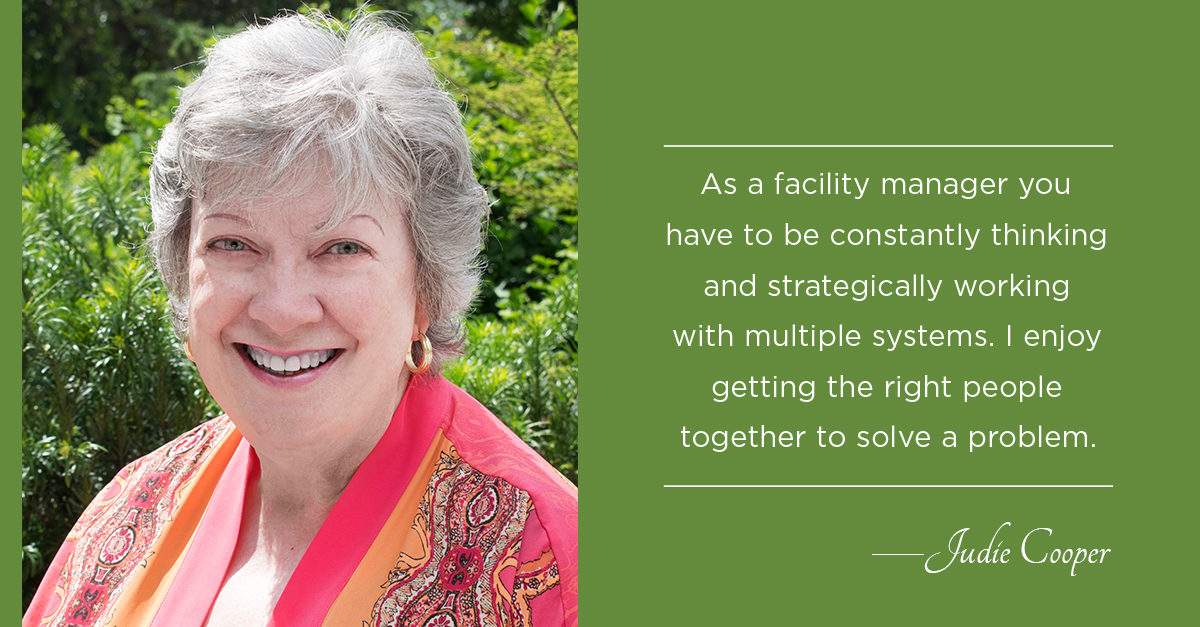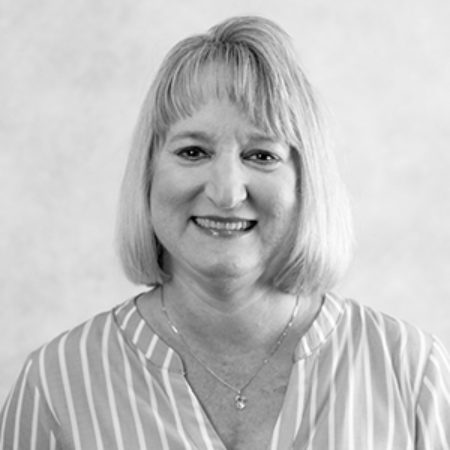After more than 40 years working in facilities at the Smithsonian Institution, Judie Cooper’s career struggles have changed. “My biggest challenge early on was that I was a woman and not a trained engineer,” Cooper said. “Now that I’ve gotten training and certified as a facility manager, my biggest challenge is anticipating my buildings’ future requirements and gaining more resources.”
Cooper manages a wide variety of buildings, from the 150-year-old Smithsonian Castle to the 1-year-old National Museum of African American History and Culture. She started her career at the Smithsonian by writing requests for facility resources. “That led me to appreciate the complexities of facilities and the issues involved in getting the right resources to tell their stories,” she said, adding “Every facility has a story and a personality.”
The Smithsonian facilities, many of which are museums, need to be in top condition to tell their stories to the tourists who line up to enter each day. “Regulating the humidity and the temperature are among the most important things we do to preserve our collection,” Cooper said. “As a facility manager you have to be constantly thinking and strategically working with multiple systems. I enjoy getting the right people together to solve a problem.”
Cooper encourages young people who are undecided about their career plans to consider facility management. “There are a hundred different ways you can take your career in facilities, and you can apply anything you’re studying in school,” she said. “You can be an engineer, you can oversee maintenance staff, you can conduct facilities training.”
How she elevates other women in the industry:
Cooper guides young people by managing a summer internship program for recent college, trade school, and vocational training program graduates. “I love getting kids who are undecided about what to do,” she said. “We assign them a mentor and a supervisor, and they work in one of the Smithsonian buildings for the summer.”
After watching several of her former interns, both men and women, go on to successful facility and maintenance careers, Cooper is convinced the hands-on mentoring and training are the factors that help them succeed. “I can’t stress enough the importance of a mentor. Find yourself more than one mentor—you need more than one point of view,” Cooper said. “Always keep on learning and become a mentor for someone else, because that’s how the circle closes.”
Learn how other women in the industry are moving up the ranks, just like Cooper.




